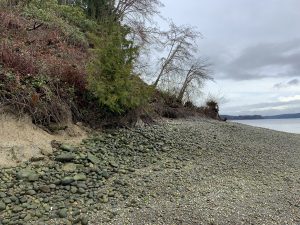
Shore Friendly is sending ripples throughout the region
Shore Friendly is a voluntary program that helps private landowners of marine shorelines in Puget Sound reduce shoreline armoring and restore shoreline habitat around the Sound. The program aids landowners in managing their property while also restoring natural beach habitat.
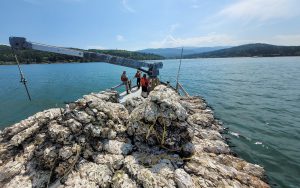
Northwest Straits 2023 Impact Report drops with a splash
Northwest Straits Commision’s Impact Report 2023 celebrates their work and achievements over the past 12 months.
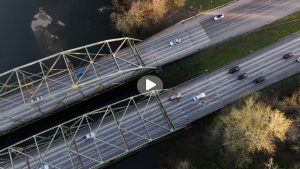
Sound Safe Infrastructure: Building a future with resilient infrastructure and ecosystems
Tribes, local governments, state agencies, and nonprofits are working together to plan and complete infrastructure improvements that contribute to Puget Sound ecosystem and salmon recovery. This relationship between the recovery and transportation sectors creates Sound Safe Infrastructure, which produces better outcomes for people, salmon, and the environment.
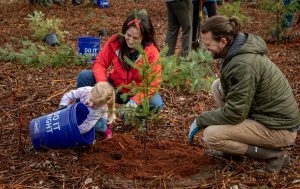
The Bipartisan Infrastructure Law and the Inflation Reduction Act provide transformational funding to support Puget Sound recovery priorities
Funding from the Bipartisan Infrastructure Law and the Inflation Reduction Act has supported projects for salmon recovery, fish passage, habitat restoration, greenhouse gas reduction, environmental health improvement, mobility and safety, flood-hazard reduction, invasive species management, and more.
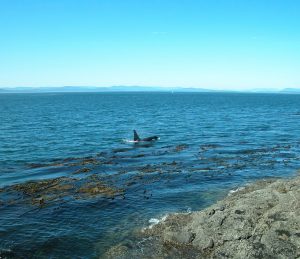
Navigating the depths
The Cetacean Desk’s marine mission for the Southern Resident killer whales.
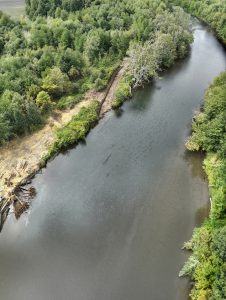
Resilient floodplains for people and salmon
Salmon recovery partners throughout the state—including Tribes, local governments, and nonprofits—have seen their projects delayed or cancelled due to impacts from a change in the Federal Emergency Management Agency’s (FEMA) no-rise policy. The no-rise policy now mandates costly analyses for salmon habitat restoration projects. Partners are seeking to work with FEMA to change the policy so that it’s more flexible for restoration activities.
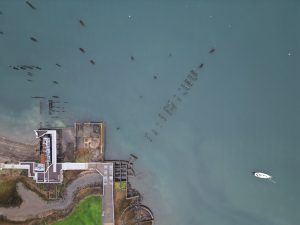
Doubling down on restoration
The Salish Sea Nearshore Programmatic is a regulatory tool that helps proponents of on- or over-water construction projects balance out the ecological impacts of construction with equivalent ecological offsets. Project proponents can offset these impacts by purchasing conservation credits from the Partnership’s Nearshore Credits Program, which helps fund restoration throughout the region.
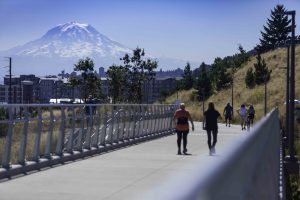
Point Ruston’s transformation from polluted smelter site to waterfront destination
Ruston, near Tacoma, was the location for a massive copper and arsenic-producing smelter operation for almost 100 years. Ruston and the northeast part of Tacoma were shaped by the smelter and its pollution, and the subsequent cleanup and redevelopment of the area have transformed Point Ruston into a bustling destination for folks throughout the South Sound.
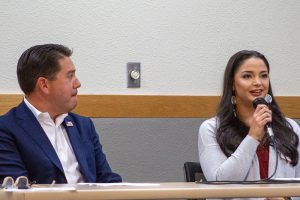
Puget Sound Day on the Sound
Representatives from federal and state agencies, Tribes, and local governments convened in Tacoma on Tuesday, Oct. 10 for the third annual “Puget Sound Day on the Sound” event. Over the course of several panel discussions, participants spoke about opportunities to better coordinate and align resources to accelerate Puget Sound recovery and support Tribal treaty rights.
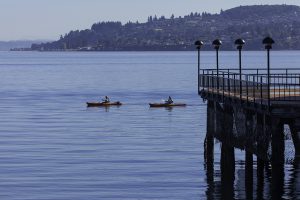
2023 Science Panel comments on science and policy
The Puget Sound Partnership’s Science Panel expanded on its comments in the 2023 State of the Sound report in a letter about science and policy.
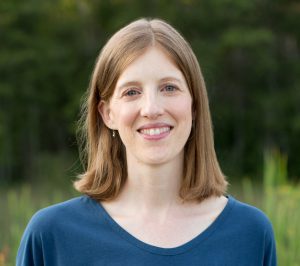
Making Waves Conversations: Nora Nickum on her new book, “Superpod: Saving the Endangered Orcas of the Pacific Northwest”
This episode of Making Waves Conversations features an interview between Laura (Blackmore) Bradstreet, executive director of the Puget Sound Partnership, and Nora Nickum, senior ocean policy manager at the Seattle Aquarium and author of books and magazine articles for kids. In the interview, Laura and Nora discuss Nora’s new book, “Superpod: Saving the Endangered Orcas of the Pacific Northwest;” orca recovery; and what it takes to make scientific information accessible for all readers.
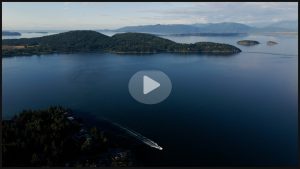
Puget Sound Geographic Program funds at work
The National Estuary Program and the Puget Sound Geographic Program have provided key funding for hundreds of projects throughout the Puget Sound region. Our new video highlights a few of the people and projects that are putting that funding to work and making a difference to the health of the Puget Sound ecosystem.
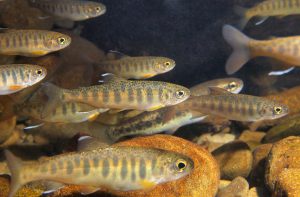
Clearing the road for salmon recovery: 6PPD-quinone and mitigation solutions
6PPD-quinone, the byproduct of a chemical added to automotive tires to keep them from breaking down, is lethal to coho salmon. People and organizations throughout the region are working hard to figure out how to control 6PPD-quinone pollution and remove it from stormwater runoff.
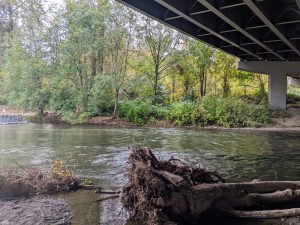
Preventing stormwater pollution protects what we care about
The Stormwater SIL recently awarded $1.6 million in Puget Sound Geographic Program funds to help prioritize locations for stormater management projects, control and lessen stormwater flow, improve water quality, control and lessen 6PPD-quinone, and replace culverts.
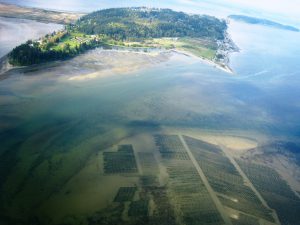
Protecting and restoring shellfish beds throughout Puget Sound
The Shellfish Strategic Initiative Lead recently awarded $5.5 million in Puget Sound Geographic Program funds to help establish pollution identification and correction programs, manage and control fecal pollution and disease-causing bacteria and viruses from onsite sewage systems (septic systems), and assist and educate farmers to help them voluntarily reduce livestock and animal manure runoff.
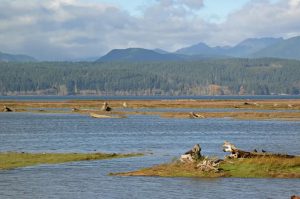
Puget Sound habitat restoration efforts to receive $14 million boost
Starting this spring, Puget Sound habitat recovery is getting a $14 million boost! Distributed through the Habitat Strategic Initiative Lead, a partnership between Washington Department of Fish and Wildlife (WDFW) and Washington State Department of Natural Resources (DNR), the investment will benefit 25 projects across Puget Sound.
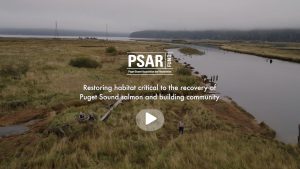
Puget Sound Acquisition and Restoration Fund: Restoring habitat critical to the recovery of Puget Sound salmon
The Puget Sound Acquisition and Restoration (PSAR) program was created in 2007 to help carry out the most important habitat protection and restoration projects for Puget Sound. PSAR projects restore habitat key to the survival of Puget Sound salmon populations.
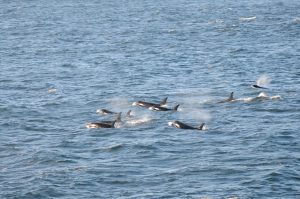
Making Waves Conversations: PUGET SOS Act and federal actions for Puget Sound recovery
In this interview, Ahren Stroming, special assistant for federal affairs at the Puget Sound Partnership, discusses the PUGET SOS Act, the increase in funding for Puget Sound recovery, and other recent federal actions.
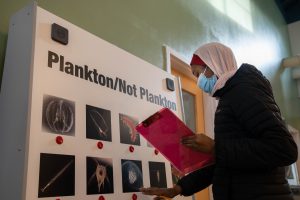
Travelling exhibit aims to get kids hooked on plankton
One of the most common lifeforms in the ocean is one you might not think about very often: plankton. A new travelling exhibit reveals the dynamic and captivating worlds of plankton that exist in our waters.
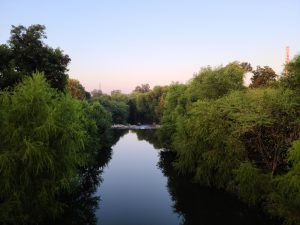
Restoring the Spirit Waters
The Partnership invited Steven Schauer to write a guest article providing lessons learned from the San Antonio River Improvements Project. Schauer, who now resides in Seattle, served as the director of external communications for the San Antonio River Authority during the construction and implementation of this innovative project.
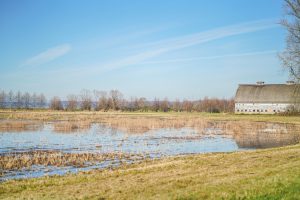
Hunting and fishing play a big role in conservation at Billy Frank Jr. Nisqually National Wildlife Refuge
The Billy Frank Jr. Nisqually National Wildlife Refuge encompasses more than 4,500 acres around the Nisqually River Delta. Among the many visitors to the refuge each year are hundreds of people who come to hunt geese, ducks, and other waterfowl during the fall and winter hunting seasons.
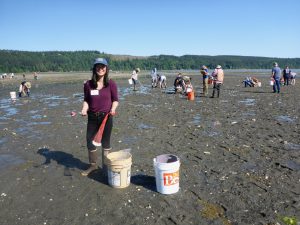
Connection, collection, culture, and cuisine: Understanding shellfish harvest in Washington
While it may seem foreign to most of the country, walking along public beaches with a shovel and bucket in hand to bring home dinner is a pastime Washingtonians know well. With hundreds of public beaches in Puget Sound, recreational shellfish harvesting allows access to local foods year-round for Washington residents.
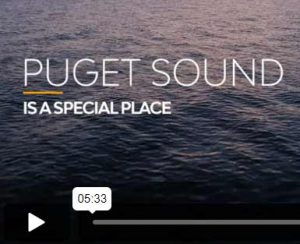
An introduction to the 2022-2026 Action Agenda
The 2022-2026 Action Agenda is our community’s shared plan to advance Puget Sound recovery over the next four years. With bold leadership and collaboration at all levels, coordinating our efforts, and acting urgently, Puget Sound can be a resilient ecosystem that supports healthy and diverse human communities and the habitats and species that we care about.
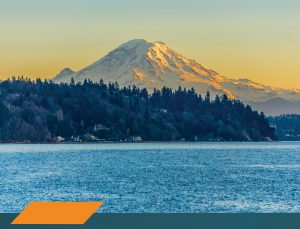
Making Waves Conversations: Laura Blackmore and Dennis McLerran discuss the 2022-2026 Action Agenda
This episode of Making Waves Conversations features an interview with Laura Blackmore, executive director of the Puget Sound Partnership, and Dennis McLerran, chair of the Puget Sound Partnership’s Leadership Council. In the interview, Laura and Dennis discuss what they find most exciting about the new Action Agenda and how it will help guide funding for recovery.
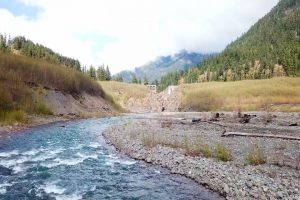
Bipartisan Infrastructure Law: A game-changer for the environment, people, and salmon
The Bipartisan Infrastructure Law is a game-changing boost to Puget Sound. This money will be invested in salmon recovery, transportation infrastructure, roads and bridges, and in helping to make Puget Sound more climate resilient. Watch our video to learn more about the impacts.
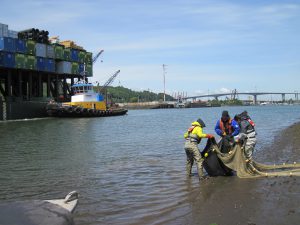
Toxics in Aquatic Life, a 2022-2026 Action Agenda Vital Signs target
Toxic chemicals in Puget Sound and the surrounding environment affect aquatic animals throughout the region. These chemicals can affect water quality and degrade habitat.

